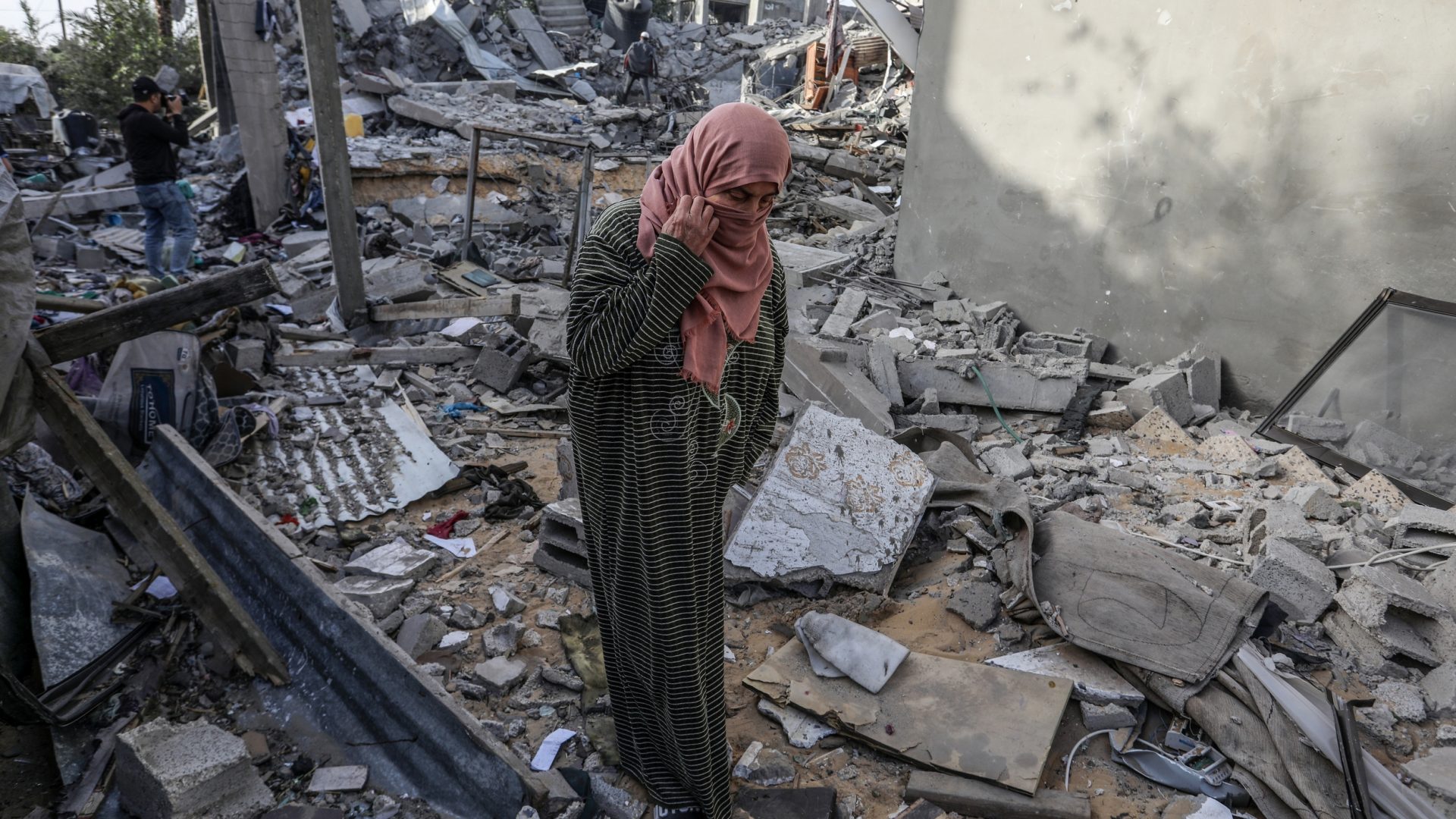“My heart is boiling. We are so down.”
These are the words of Dr. Umaiyeh Khammash, the director of Juzoor for Health and Social Development, a Palestinian NGO that has been tirelessly working to provide aid to the people of Gaza since the onset of hostilities.
One year into the conflict, he speaks with a heavy heart, knowing that the situation for Gaza’s older people is unbearable. “I think of people like my collegue Dr. Yehya,” he says. “He’s 75 years old, a doctor who has served his community for decades. Now, his home is destroyed, and he’s seeking shelter just like so many others.”
Older people in Gaza are often forgotten or overlooked. “We have around 100,000 older people here, and 70-80% of them suffer from chronic conditions or disabilities,” Dr. Umaiyeh explains. “But very few aid programmes are directed towards them. Most focus on children and pregnant women, while our older people are left behind.”
Dr. Umaiyeh recounts heartbreaking stories from the front lines. “Many older poeple couldn’t flee when the bombing began. They need to be able to run or walk for several kilometres to escape the bombing and their familiies cannot carry them. Others refused to move but have stayed behind without their families to support them. They’re too old or too disabled to search for food or water, and their health is deteriorating fast.”
Access to medication has become an overwhelming challenge. “When the war started, 80% of older people in shelters still had their medications in the first month. But this started to drop and now only 40% of those with health problems are able to get hold of their medications. That means around 40,000 older people are without the treatments they need to survive.” He pauses, his voice heavy. “Many are dying prematurely. Their nutrition has declined, they’ve lost weight, and their psychosocial wellbeing is collapsing. They live with a fear of death or of losing their families.”
Dr. Umaiyeh remembers a time when they were able to provide a commode for an elderly woman who had difficulty walking in her damaged home. “Her family had been carrying her to the bathroom each time, but after we brought her the device, she was so happy. She said it was better than receiving food. It was such a small thing, but it made a huge difference in her life.”
But help is scarce. “The Israeli blockade restricts everything. They won’t allow assistive devices into Gaza. But even though the local market is not really functioning, we were able to find them because no one has any money and not everyone is looking for them.
The destruction of places of worship has only worsened the emotional toll. “For many of our older people, mosques and churches are where they find peace and connect with God. But those places are gone now, adding another layer to their suffering.”
Dr. Umaiyeh himself has felt the mental strain of the conflict. “When the war started. I couldn’t sleep, thinking about my colleagues and friends. People like Dr. Abed, who’s lost 25 kilograms and has often had to live on just one egg a day and the water from his well. Another colleague, Even Dr. Bassam, has lost 30 kilogrammes and I can see how thin he has become when we talk on Zoom. And these are the lucky ones—they’re doctors, and we’ve been able to help them somewhat. But so many others are completely alone.”
Yet, despite all this, there is a glimmer of hope. “What keeps me going,” he says, “is being able to help, even in small ways. Even if I can help one person not to die, or improve their mental health, it helps me too.”
Dr. Umaiyeh is grateful for the international support they’ve received from international organisations like HelpAge. “It’s not always a lot of money, but even small amounts can make a difference. Some of the international organisations responded quickly, allowing us to reallocate our existing funds to help people in Gaza immediately. That’s given us the strength to continue.”
“Of course, we cry sometimes in the morning when we sit together. But we have been able to support the psychosocial wellbeing of our staff in Gaza. What can surprise us is that they can encourage us more than we encourage them. They say they will survive, they will rebuild their houses, and that Gaza will be back again.”
But his message to the world is clear: “We must stop this barbaric war. Without that, we cannot do anything. My colleagues in Gaza have no safe place to sleep, and I can’t sleep knowing that they are suffering. We are a people who deserve, like anyone, to live with dignity and respect. We have the same dreams, the same aspirations. But this war—it’s destroying everything.”
Dr. Umaiyeh’s words reflect the resilience of the people of Gaza, and yet they are also a plea for peace. “I hope peace will happen,” he says softly. “I hope the world will listen.”

